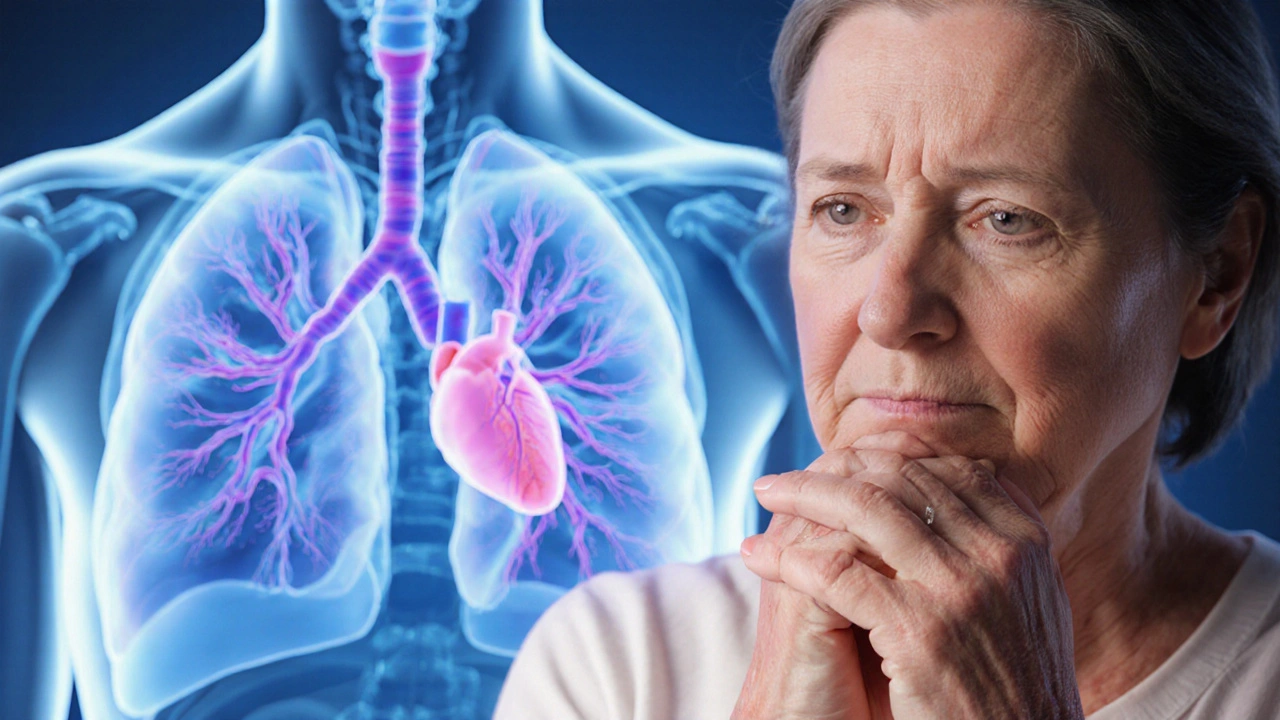Pulmonary Arterial Hypertension: Causes, Treatments, and What Works
When the arteries carrying blood from your heart to your lungs become narrow and stiff, you’re dealing with pulmonary arterial hypertension, a type of high blood pressure that specifically affects the lungs and right side of the heart. Also known as PAH, this condition forces your heart to work harder, which can lead to serious complications like right heart failure, when the right ventricle can’t pump blood effectively due to long-term strain. Unlike general high blood pressure, PAH doesn’t show up on a standard arm cuff test—it needs specialized scans and heart evaluations to catch early.
PAH isn’t just one disease. It’s a group of disorders that can be triggered by genetics, connective tissue diseases like scleroderma, or even unknown causes. People with PAH often feel out of breath during simple tasks, get tired fast, or notice swelling in their ankles. Over time, the heart muscle thickens and weakens, making everyday life harder. That’s why treatment isn’t just about lowering pressure—it’s about protecting the heart, improving oxygen flow, and slowing damage. Common medications include endothelin receptor antagonists, drugs that block chemicals narrowing lung arteries, phosphodiesterase-5 inhibitors, like sildenafil, which help relax blood vessels, and prostacyclin analogs that widen arteries and reduce clotting risk. These aren’t one-size-fits-all. What works for one person might not work for another, and side effects like headaches, dizziness, or fluid retention are common.
The posts you’ll find here cover real-world comparisons and practical insights. You’ll see how drugs like Candesartan and Zestoretic—used for regular high blood pressure—differ from PAH-specific treatments. You’ll find advice on how nutrition and movement can support lung health without overstraining the heart. You’ll also learn about risks tied to supplements, like turmeric’s interaction with blood thinners, which matters if you’re on anticoagulants for PAH-related clotting issues. There’s no magic fix, but knowing what options exist, how they stack up, and what to watch for makes a big difference. Whether you’re managing this condition yourself or helping someone who is, the information below gives you the clarity you need to ask better questions and make smarter choices.
- Archer Pennington
- 12
How Pulmonary Arterial Hypertension Links to Rheumatoid Arthritis
Explore how rheumatoid arthritis can trigger pulmonary arterial hypertension, the shared immune mechanisms, diagnostic steps, and combined treatment strategies for better outcomes.
Read more
